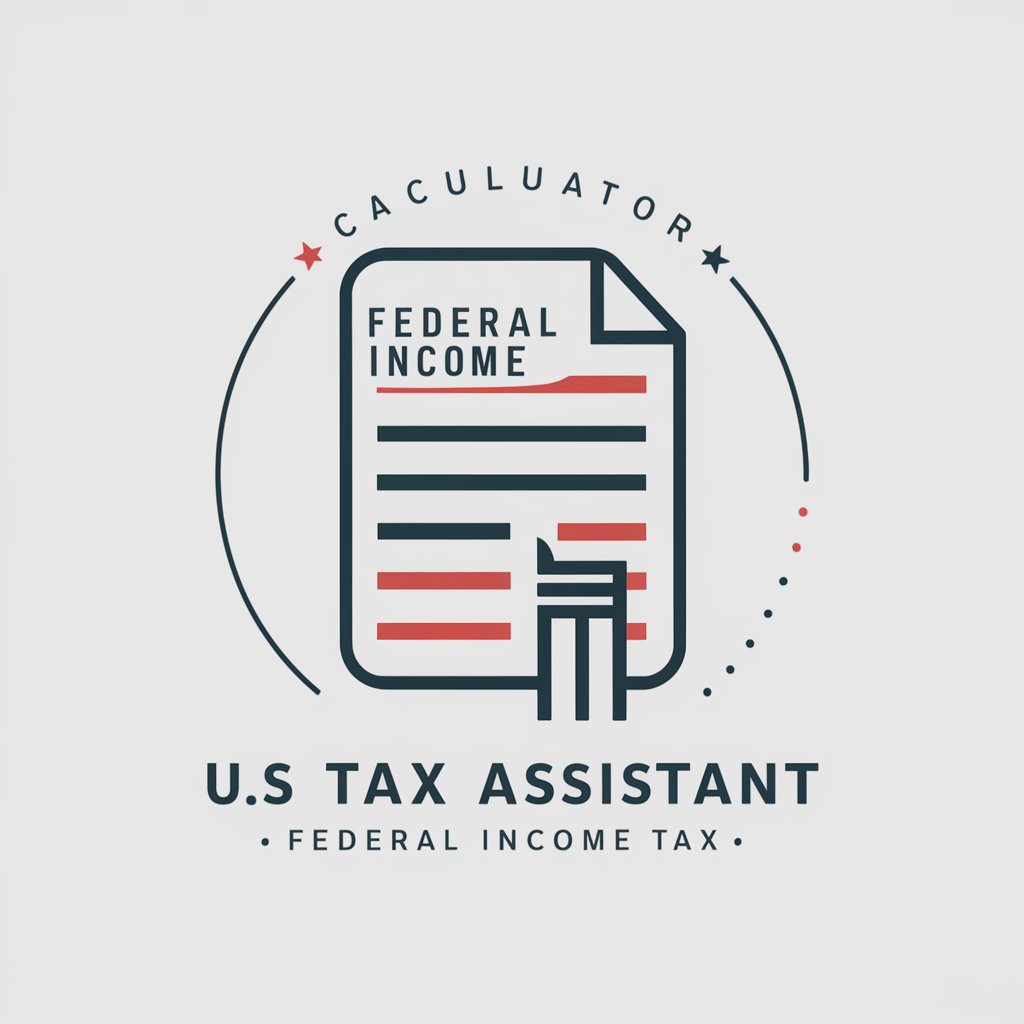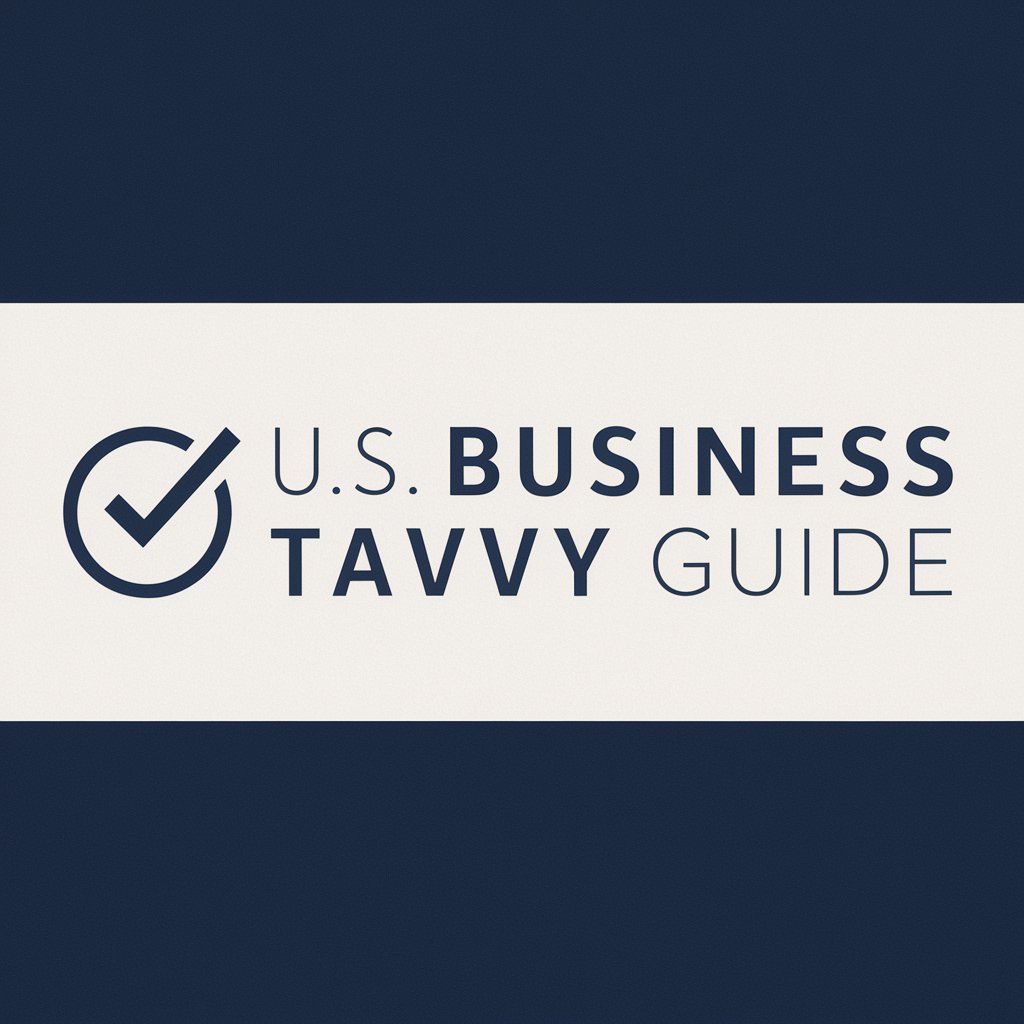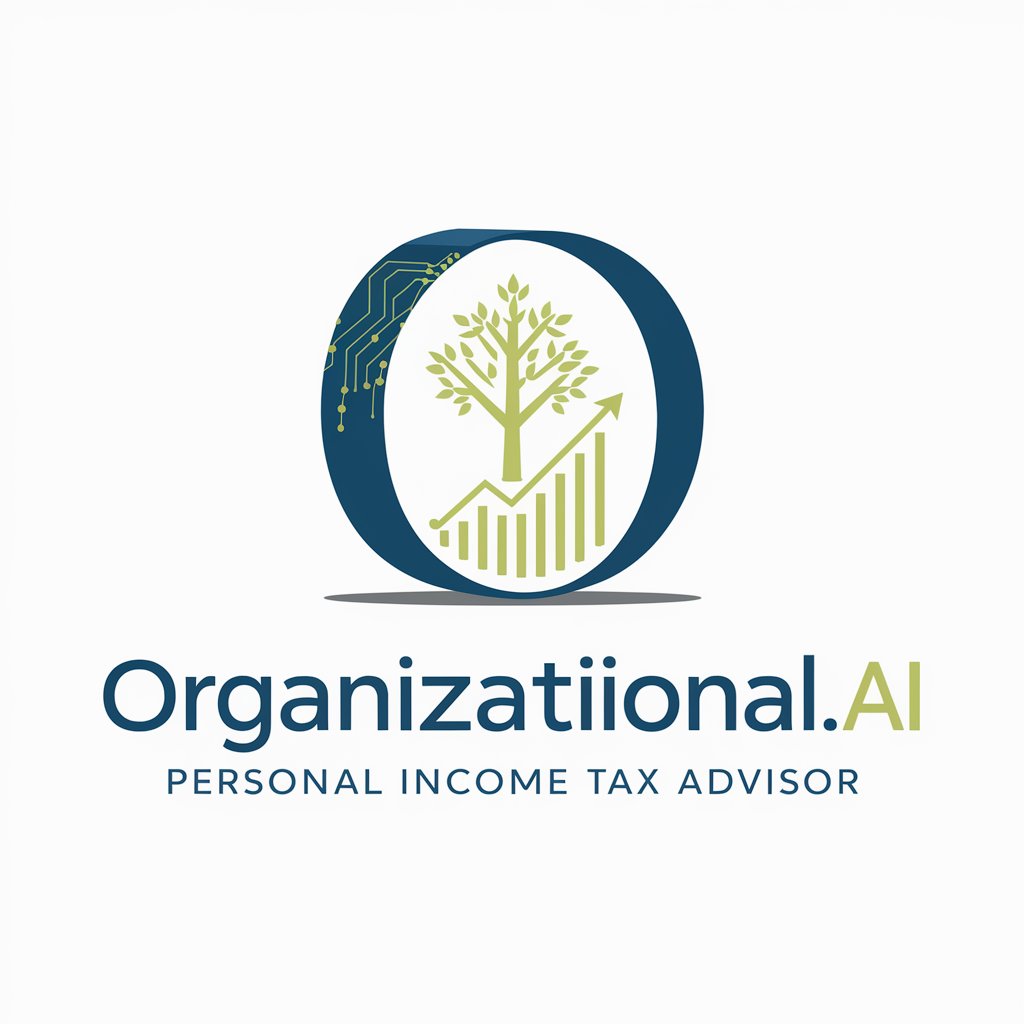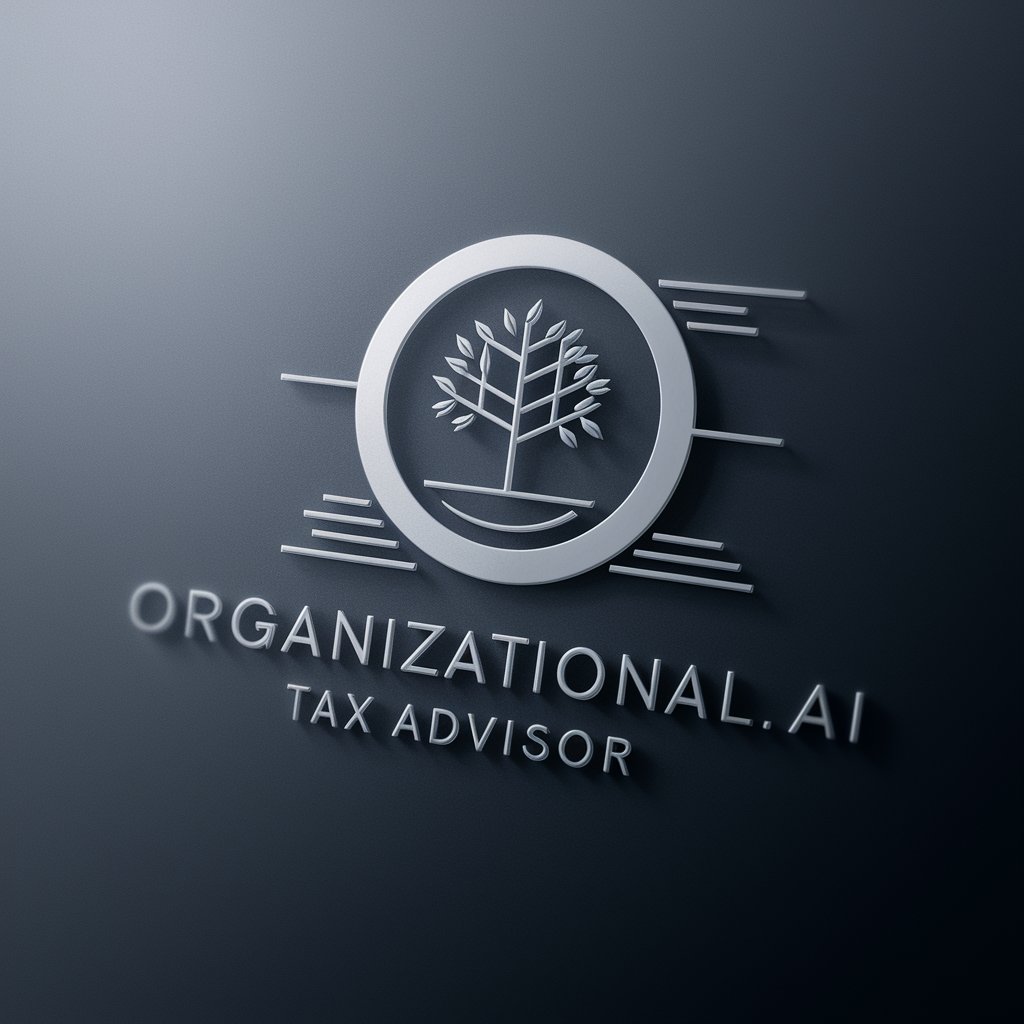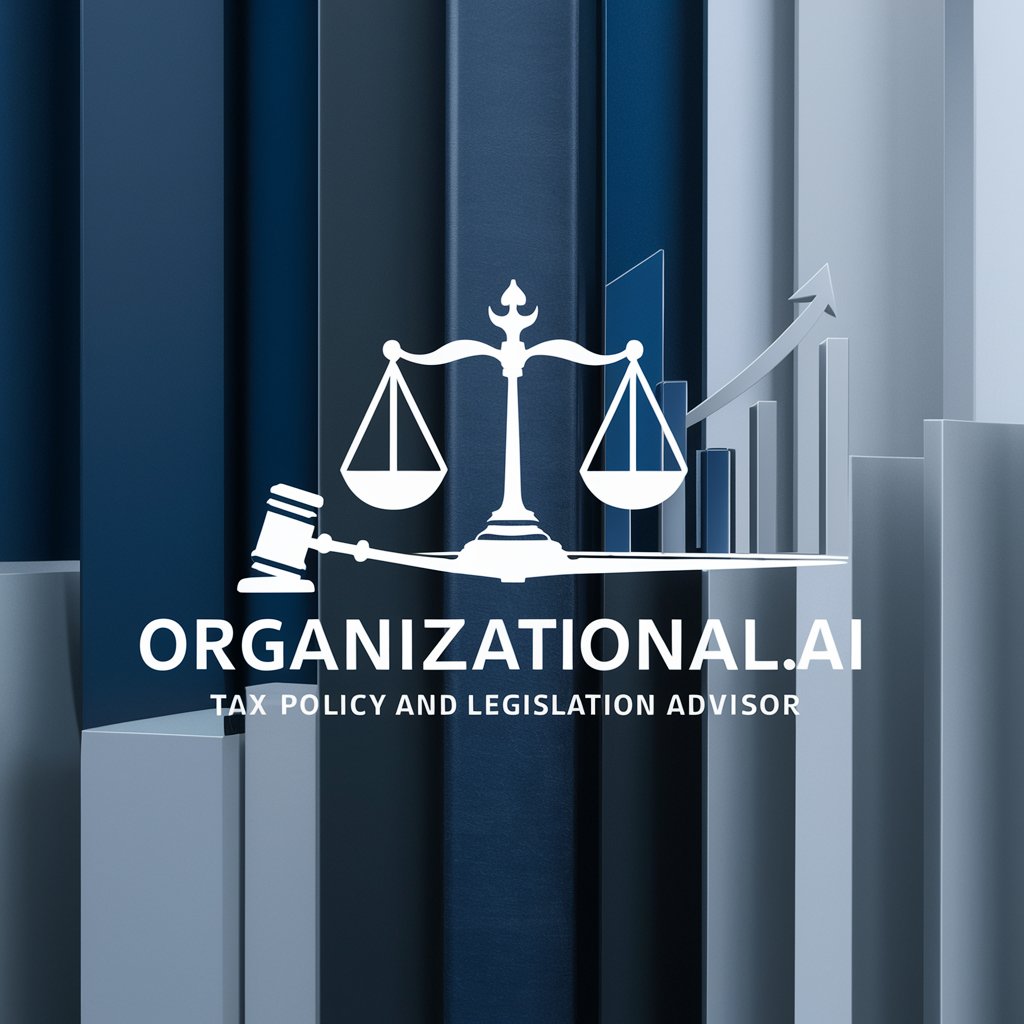
Income Tax Loopholes - Tax Strategy Optimization
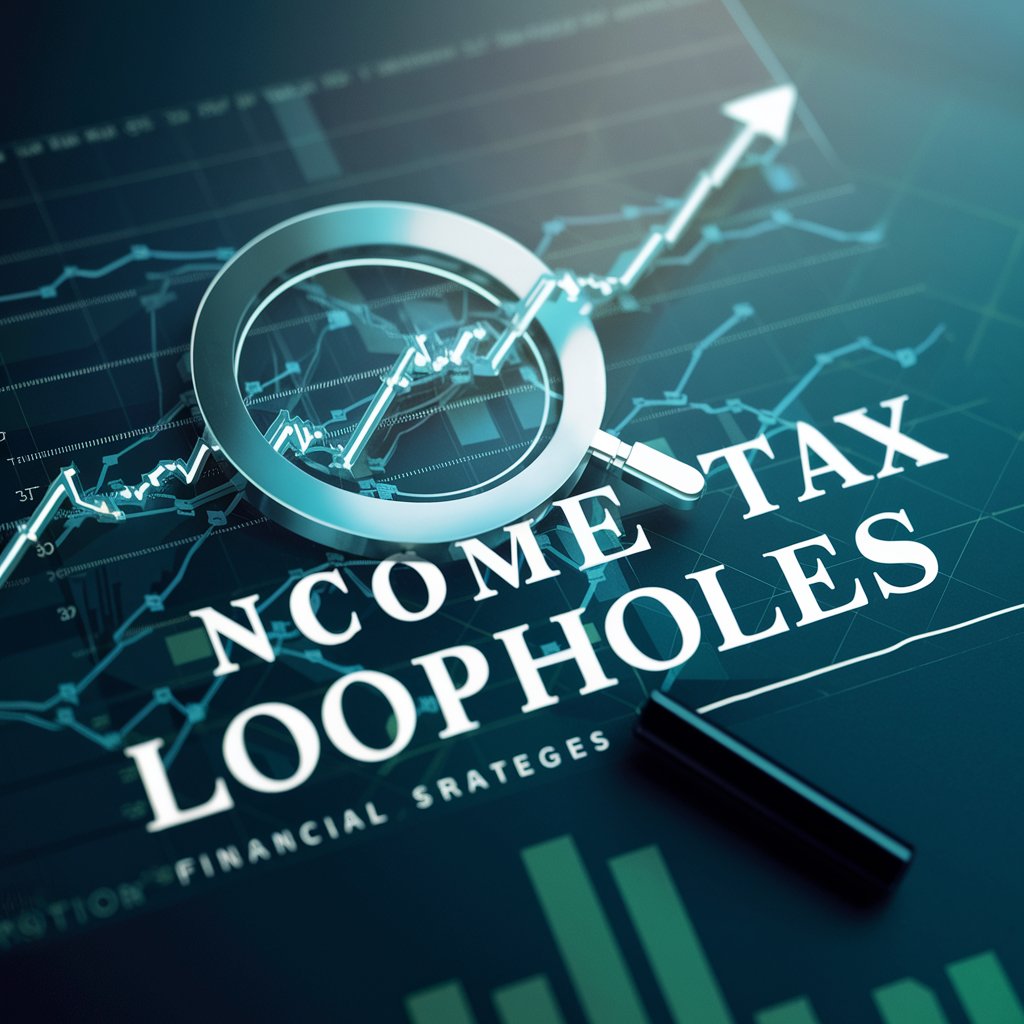
Welcome! Let's explore strategic tax planning to optimize your financial outcomes.
Navigate Tax Laws with AI Precision
What are some effective tax planning strategies for small businesses?
How can individuals legally minimize their taxable income?
What are the most common tax deductions that businesses often overlook?
How can one leverage tax credits to reduce their overall tax liability?
Get Embed Code
Understanding Income Tax Loopholes
Income Tax Loopholes is designed to navigate the complex world of tax laws, focusing on identifying legal strategies and opportunities within tax regulations that can minimize tax liabilities. This involves a deep dive into tax codes to uncover less obvious benefits, deductions, credits, and tax-efficient investment strategies. For example, strategic use of retirement accounts like IRAs or 401(k)s for tax deferral, or understanding the nuances of real estate investments for capital gains treatment and depreciation deductions illustrate how tax planning can be optimized. The goal is to provide users with insights that are not readily apparent, leveraging legal avenues to reduce taxes within the bounds of tax laws. Powered by ChatGPT-4o。

Core Functions of Income Tax Loopholes
Tax Deduction Optimization
Example
Utilizing business expenses to lower taxable income for self-employed individuals or businesses.
Scenario
A freelance graphic designer could deduct expenses for a home office, software subscriptions, and equipment, effectively lowering their taxable income and thereby reducing their tax liability.
Tax Credit Maximization
Example
Identifying and applying for tax credits such as the Earned Income Tax Credit (EITC) or education credits.
Scenario
A family with a modest income could significantly reduce their tax bill by claiming the EITC and the American Opportunity Tax Credit for college expenses, ensuring they pay less in taxes or receive a larger refund.
Investment Tax Strategies
Example
Leveraging tax-efficient investment vehicles and understanding the benefits of long-term vs. short-term capital gains.
Scenario
An investor could focus on holding investments longer than a year to benefit from lower long-term capital gains tax rates, or use a Roth IRA to invest with post-tax dollars for tax-free growth and withdrawals.
Estate and Gift Tax Planning
Example
Utilizing annual gift exclusions and lifetime estate tax exemptions to pass wealth to heirs with minimal tax implications.
Scenario
A high-net-worth individual might gift up to the annual exclusion amount to multiple beneficiaries each year, reducing their taxable estate without incurring gift tax liability.
Real Estate Tax Strategies
Example
Exploiting depreciation, 1031 exchanges, and opportunity zone investments for real estate investors.
Scenario
A real estate investor could use a 1031 exchange to defer capital gains taxes by reinvesting the proceeds from a property sale into another investment property, or invest in an opportunity zone for tax benefits.
Who Benefits from Income Tax Loopholes?
Self-Employed Professionals and Small Business Owners
This group can significantly benefit from understanding and applying tax deductions specific to their business expenses, optimizing their tax situation by reducing taxable income through legitimate business-related expenditures.
High-Net-Worth Individuals
Those with substantial wealth can utilize advanced tax planning strategies such as estate and gift tax planning, investment in tax-efficient vehicles, and charitable giving strategies to manage and reduce estate taxes and income taxes.
Investors
Investors can benefit from strategies that focus on tax-efficient investing, such as utilizing tax-advantaged accounts, understanding the implications of capital gains taxes, and leveraging tax-harvesting techniques to offset gains with losses.
Families and Individuals Seeking Tax Credits
Individuals and families with moderate incomes can gain from maximizing applicable tax credits and deductions, such as the EITC, child tax credit, and education-related credits, to reduce their overall tax liability.
Real Estate Investors
Real estate professionals can leverage specific tax laws related to real estate investments, such as depreciation, 1031 exchanges, and special zoning benefits, to minimize taxes and maximize investment returns.

Guidelines for Using Income Tax Loopholes
Step 1
Begin by visiting yeschat.ai for a complimentary trial, accessible without login or the necessity for ChatGPT Plus.
Step 2
Familiarize yourself with current tax laws and regulations to understand the context in which Income Tax Loopholes operates.
Step 3
Identify your specific tax situation, including income sources, deductions, and credits, to determine relevant tax strategies.
Step 4
Utilize Income Tax Loopholes to explore legal tax minimization strategies, ensuring adherence to all applicable laws.
Step 5
Regularly update your knowledge of tax laws and consult with tax professionals to maximize the effectiveness of Income Tax Loopholes.
Try other advanced and practical GPTs
9-5 Women in Business
Empowering Women in Business with AI

Cloud Author Assistant
Empowering cloud education with AI

Cosmetology
Empowering Your Beauty Journey with AI

SEPTEMBER | Marketing Strategist
Strategize, Optimize, Revolutionize.

Car Name Creator
Crafting Unique Names for Every Car

! Automotive Tutor !
Empowering Automotive Learning with AI

Breys Concierge
Empowering Your Beauty Routine with AI

Startup Angel
Empowering startups with AI-driven insights

Tragedy Academy Podcast Marketing Expert
Elevate Your Podcast with AI-Powered Marketing

Tom Tom
Empowering Your Coding Journey with AI

Streamlit Daddy
Optimize your Streamlit apps effortlessly.

BCI FYP Part 2
Powering BCI Innovation with AI

Frequently Asked Questions about Income Tax Loopholes
What are Income Tax Loopholes?
Income Tax Loopholes are legal strategies used to minimize tax liabilities within the bounds of the law, often involving nuanced interpretations of tax regulations.
Can Income Tax Loopholes assist with international tax planning?
Yes, it can provide insights into international tax laws, helping businesses and individuals navigate cross-border tax complexities.
Is it ethical to use Income Tax Loopholes?
Using Income Tax Loopholes is ethical as long as it's within legal boundaries and does not involve evasion or fraudulent activities.
How often should I review my tax strategy with Income Tax Loopholes?
Regular reviews, ideally annually or whenever significant financial changes occur, are recommended to ensure strategies remain effective and compliant.
Can Income Tax Loopholes help with state and local taxes?
Yes, it provides insights into various state and local tax laws, assisting in optimizing tax positions at all governmental levels.
